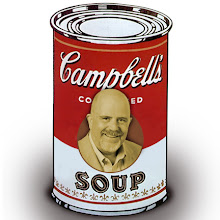As the publicist for Austin Innotech, I get to work with some of the sharpest people in the business. One of my jobs is to reach out to the blogosphere to share some of the upcoming programs for our Oct. 29 event. Here's a recent interview with Ian Strain-Seymour, the director of marketing for Apogee Search.
Q: How can social media and search work together?
A: These two can work together in a lot of different ways. You can use
search (both paid and organic) to help people find your presence in social
media channels or to places where your praises are being sung. On the other
hand deep, rich conversations are one of the types of content that search
engines like, so these can play into your brand's shelf space or if links
are included in the content, even drive your organic search performance
through high value links.
Q: Do social media and search ever work against each other?
A: Absolutely. Social Media drives a lot of content, which can cause one of
two issues. Walled gardens, or websites that can't be fully crawled by
search engines, can close off a lot of the great things being said about
your product or company so that they are never found.
The other issue is the noise that all the volume creates. With the volume of
chatter going on, the search engines sometimes have a hard time deciphering
it all, which can cause relatively poor conversation to float to the top.
Things have improved, but it is not uncommon to see search results that
don't help a searcher find the information they were looking for.
Q: What should businesses do now to address their web visibility
A: This is kind of a chicken and egg question, but at the end of the day, I
think that it makes sense to focus on search first. Get your website well
optimized for search engines, then switch focus to developing a community or
your presence in an existing community bas for your product or business.
This requires continuing, ongoing commitment, not just lip service.
Q: Resources are tight these days. Can the same people (either inside a
company or from an agency) work on both?
A: It depends. What does it depend on? It depends on the people doing the
work and the company and products being focused on. In many cases yes,
because search people that only know search are missing a lot of the
picture, and vice versa. In some cases, where either the community is point
of the business or the product and company brands are very large, it make
sense to split thing out. This however requires the team members to work
together closely.
--




